
#33: My Most Memorable Novelty
The joy of charting unexplored territoryThe novelty
In 2007, I found a new move for Black on move 6 in an Open Sicilian.
No one has played it OTB to this day. Here on Lichess, out of the 63,871 games reaching the position, it's only been played 3 times, the first time in 2019.
The surprise comes in the Kan after 1.e4 c5 2.Nf3 e6 3.d4 cxd4 4.Nxd4 a6 5.Bd3 Nc6, and the most common 6.Nxc6 reaches the diagram.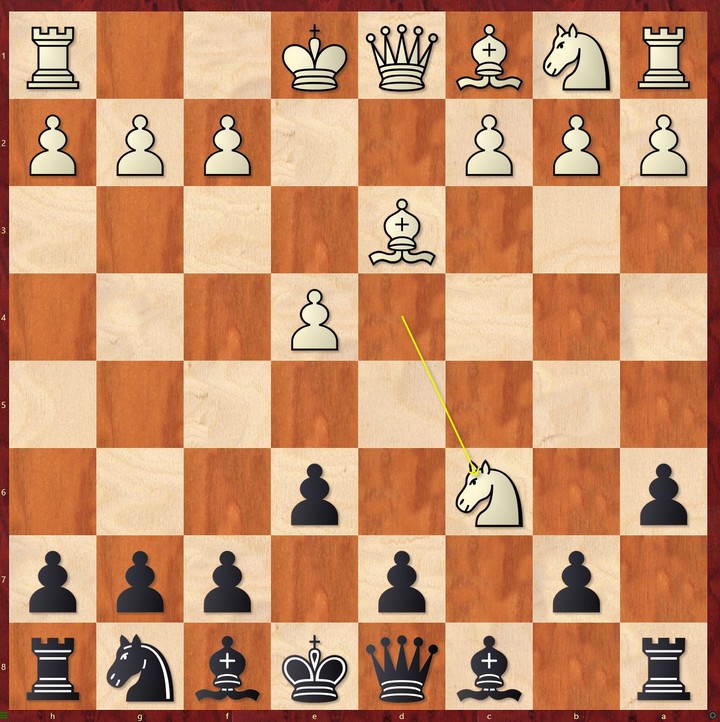
In around 2 out of every 3 games, Black recaptures with the d-pawn, and this scores better than the alternative, 6...bxc6.
Can you see the third option?
Preparing for a game in the World U/16 Olympiad in Singapore 16 years ago, I wondered...what if I play 6...Qb6?!
And...the knight's trapped!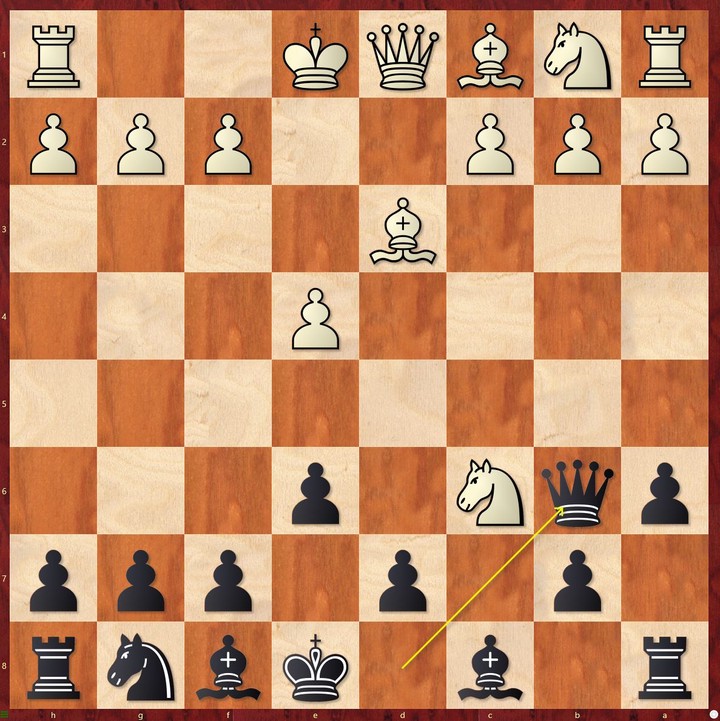
The knight will be captured whether it goes back to d4 or tries b4, a5, a7, b8, d8, e7...and if 7.Ne5, Black forks the king and knight with 7...Qa5+.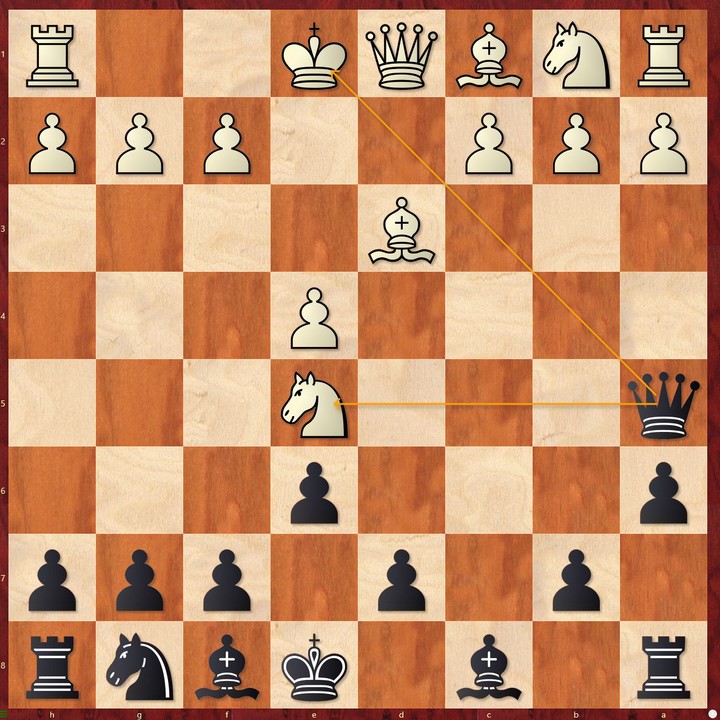
Our coach in Singapore, GM Ian Rogers came up with a counter-punch, grabbing a pawn: 7.Bxa6!? "Since I'm a piece up already, you can't take both pieces at once!"
As the knight can safely return to d4 if Black takes the bishop, it looked like the novelty was buried...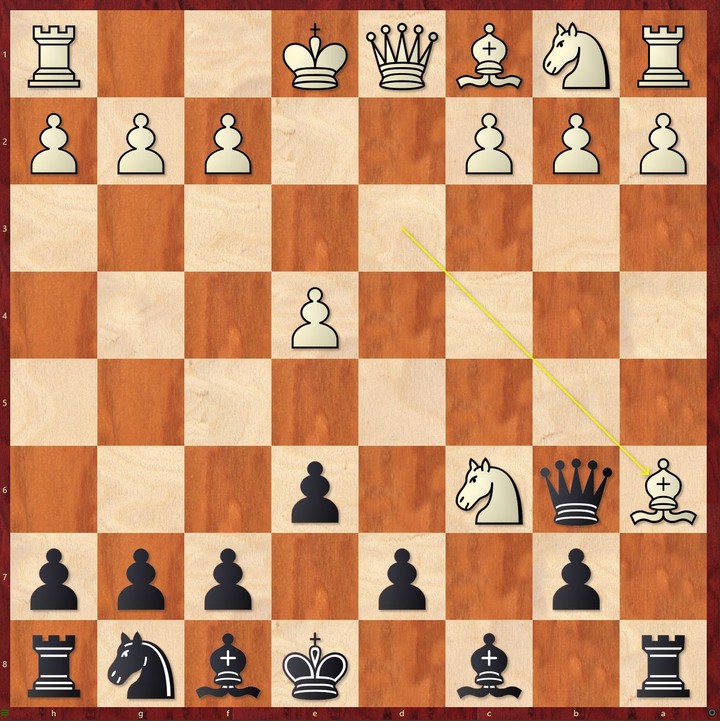
But it turns out that after 7...Rxa6 8.Nd4 Bc5 9.c3 e5 (diagram), White has to return the pawn with 10.b4! or end up in a lost position! (Even 7...bxa6 is good enough, with the two bishops providing compensation after 8.Nd4 Bc5 9.c3 Bb7.)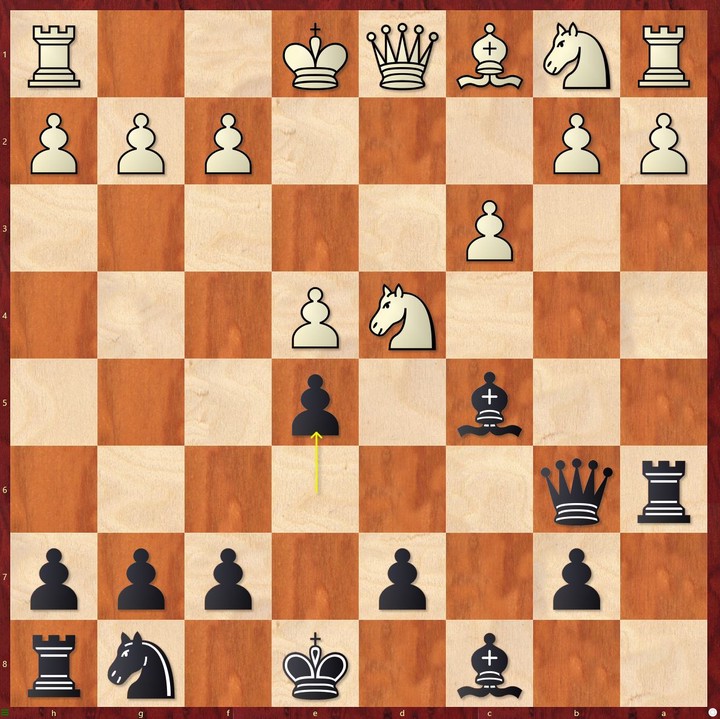
Memorable, but not good
As you may have figured out, 6...Qb6 is dubious at best.
White should play 7.Ne5! and after 7...Qa5+ 8.Nd2 Qxe5 9.O-O (diagram) they have an overwhelming advantage in development.
White could even play a normal move like 7.O-O after 6...Qb6 and it’s a question of how much worse Black is. The tempi spent on the queen had other hopes and dreams.
So, 6...Qb6 is, objectively speaking, no good. It's the kind of ‘novelty’ that would only really be worth playing in blitz or bullet for a bit of fun.
But even now, after 16 years, I still remember the excitement of finding an absurd move that maybe no one had ever seriously considered before. At the end of the day, you don’t only remember successes and failures, but also little bits of fun on the way.
Illustrations: irasutoya
Finding something of your own
I’ve played around 1,600 classical OTB games, so I’m sure there are other ‘novelties’ I’ve played that are respectable, but 6...Qb6 is definitely the most memorable.
It makes sense when you think about how unlikely you are to find a move, especially so early in the game, that’s never been played OTB and is playable.
These days, there are so many resources on openings, from books to courses, databases to videos. It’s easy to follow the recommended moves as a sort of truth. But chess, like anything else, is more fun when you find something from your own searching, after thinking, what if...? about something and exploring it yourself.
- If you’re curious about anything—whether it be a variation the author didn’t include but seems the most natural, or an alternative from a game you want to play out on a board to see what might happen—pursue it. Your intuition is a good guide, and by spending time on what you find interesting, you refine it further
- Don’t buy every new opening course thinking it’s the one for you. Think about what you want to learn, or what you think might suit you, and trial it first. If you feel you need a reference after playing some games, then buying makes more sense. When you study something after trying it yourself first, it’s more instructive
- Nowadays, pet systems or variations you know well are practically more difficult for opponents to deal with, especially if it’s rare. Sure, it’s good to study and know opening variations, but don’t blindly trust sources just because they’re published. Are you only regurgitating things, or are you adding your own touch and ideas?

What unique, even if practically useless, discoveries have you made in your chess?
The only true voyage would be not to travel through a hundred different lands with the same pair of eyes, but to see the same land through a hundred different pairs of eyes.
—Marcel Proust, The Captive/The Fugitive (In Search of Lost Time #5–#6)
Thanks for reading. If you'd like to receive posts like this in your inbox, you can subscribe to my free newsletter at https://juntaikeda.substack.com/, now with over 1,000 readers.
You may also like
 IM datajunkie
IM datajunkie#32: Book review: Finite and Infinite Games
5 stars! Do you play chess as a finite or infinite game? IM mmsanchezchess
IM mmsanchezchessLevel up your endgames Part 2: The Strengths and Weaknesses of the Minor Pieces
Hi Everyone! I’m back with the second part of my series on leveling up your endgame play. In my firs… GM Avetik_ChessMood
GM Avetik_ChessMoodObjectivity - the key ingredient for your growth
Objectivity can make your chess grow faster. Yet many underestimate its importance. So what’s the so… IM datajunkie
IM datajunkie25 lessons from 25 years of chess
Mistakes you can avoid and habits you can start with today IM datajunkie
IM datajunkieThe 5 things I do before a tournament
Learnt from 25 consecutive years of OTB GM NoelStuder
GM NoelStuder